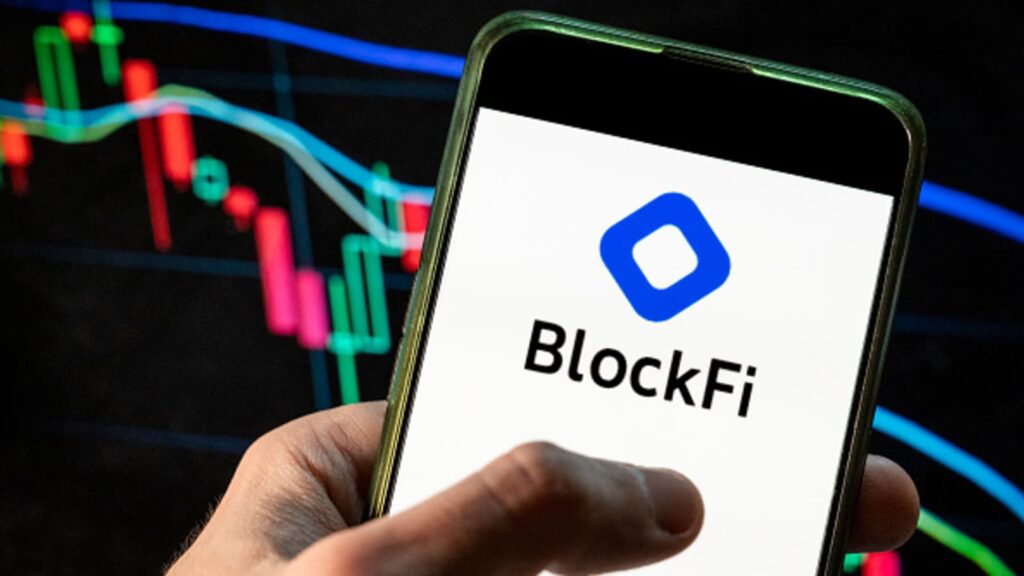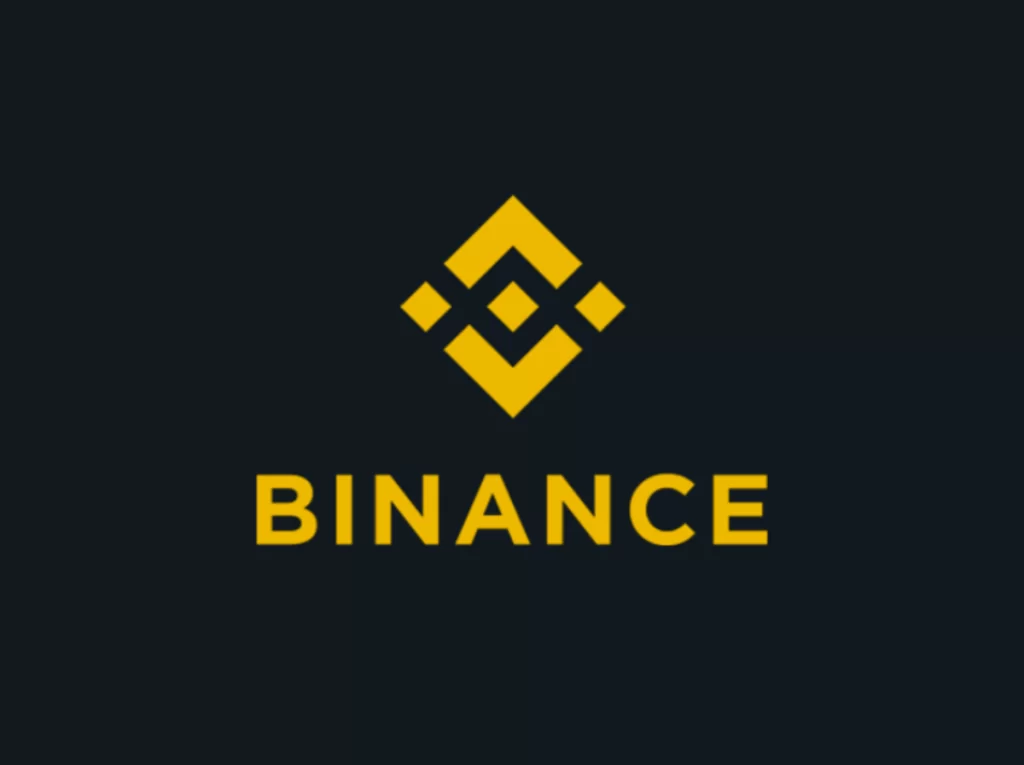A United States judge has approved a settlement resolving disputes between crypto lender BlockFi and defunct crypto hedge fund Three Arrows Capital (3AC), with the details ordered to remain sealed.
New Jersey Bankruptcy Court Judge Michael Kaplan greenlit the agreement during a Feb. 6 hearing, aiming to halt further legal battles.
BlockFi asserted that 3AC owed it $129 million, whereas the hedge fund contended BlockFi owed it $280 million.
Judge Kaplan opted to keep the settlement agreement sealed, countering objections from the U.S. Trustee who argued for disclosure, citing the debtors’ failure to justify sealing.
BlockFi’s motion to seal specific information emphasized the sensitivity of the terms and their potential impact on litigation involving bankrupt crypto exchange FTX.
The court upheld the motion, emphasizing the need to safeguard settlement strategies and honor comity with 3AC’s foreign bankruptcy proceedings.
READ MORE: South Korean Prosecutors Arrest Haru Invest Executives in $830 Million Crypto Theft Scandal
Approval of the settlement enables BlockFi to proceed with distributions from the lending estate to creditors, a critical step sought for rapid approval.
Kaplan had previously greenlit BlockFi’s amended Chapter 11 and customer repayment plan in September 2023, following the firm’s clearance for liquidation.
Estimates indicated BlockFi’s debts amounted to $10 billion among over 100,000 creditors, with its three largest creditors owed $1 billion and 3AC owed $220 million.
Three Arrows Capital’s collapse in June 2022 led to BlockFi’s bankruptcy filing in late November 2022, following the downfall of FTX.
Additionally, in February, OPNX, a crypto bankruptcy claims platform launched by 3AC co-founders Su Zhu and Kyle Davies, announced its official closure, ceasing operations by Feb. 14.
On February 7, the total daily trading volume for spot Bitcoin exchange-traded funds (ETFs) surpassed a billion dollars, with BlackRock taking the lead.
Bloomberg Intelligence analyst James Seyffart noted a significant surge in trading activity for BlackRock’s iShares Bitcoin Trust (IBIT), which amassed a daily trading volume of $341.2 million, outstripping the Grayscale Bitcoin Trust’s $296.5 million, according to Seyffart’s analysis.
Fidelity’s FBTC fund secured the third position with a trading volume of $200 million, while the remaining seven funds collectively contributed $188 million, culminating in a daily trading volume exceeding a billion dollars.
Despite this milestone, Seyffart downplayed its significance, stating that surpassing the billion-dollar mark “isn’t that big of a deal” for Bitcoin ETFs.
He clarified that while it represented an increase from recent days, it still fell short of the initial trading weeks.
READ MORE: Crypto Wallets Tied to FTX and Alameda Transfer $38.8 Million to Exchanges Since January 2024
In a notable trend, inflows into spot Bitcoin ETFs have consistently outpaced outflows from GBTC for the ninth consecutive day.
On February 7, preliminary data from Farside revealed $81 million in outflows from GBTC, contrasted with $226 million in inflows across the other nine spot Bitcoin ETFs, resulting in net flows of $145 million.
BlackRock witnessed an inflow of $56 million, Fidelity’s fund saw an increase of $130 million, and Bitwise experienced inflows of $21 million.
On February 8, investor and author Fred Krueger highlighted a significant observation: the combined BTC holdings of the newly launched nine ETFs were poised to exceed those of MicroStrategy, the largest corporate holder of the asset.
The ETF funds collectively held approximately 187,000 BTC as of February 7, slightly below MicroStrategy’s holdings of 190,000 coins valued at over $8 billion.
In a related development, it was reported that Fidelity had begun allocating spot Bitcoin to their All-in-One Conservative ETF. ETF analyst Eric Balchunas regarded this move as a positive sign, particularly in the conservative investment domain.
The South Korean government has introduced an updated version of the Virtual Asset Users Protection Act, aiming to safeguard cryptocurrency investors from market misconduct.
The Financial Services Commission (FSC), South Korea’s principal financial regulatory body, unveiled the new legislation on February 7, intending to uphold investor rights and enhance market transparency.
This new crypto-focused law in South Korea explicitly prohibits the exploitation of undisclosed vital information, market manipulation, and illicit trading activities.
To enforce compliance, the legislation imposes severe penalties, including fixed-term imprisonment exceeding one year or fines ranging from three to five times the illegal profits.
Scheduled for implementation on July 19, 2024, the Virtual Asset User Protection Act was officially passed on July 18, 2023.
Under this act, individuals involved in illegal crypto trading schemes and generating over 5 billion won (approximately $3.8 million) could face life imprisonment.
READ MORE: ‘Very Few Speak of the Crypto Winter, Bitcoin is Rising in 2024’ – Serhii Tron on Crypto Investments
Furthermore, the FSC underscores its authority to supervise virtual asset business operators, investigate unfair trading practices, and ensure adherence to the Virtual Asset User Protection Act.
This includes conducting inspections and taking regulatory actions as necessary.
The genesis of this legislative update can be traced back to a significant industry crisis involving Terraform Labs and its South Korean founder, Do Kwon.
The collapse of Terraform Labs in May 2022 resulted in a market downturn, wiping out over $450 billion.
Consequently, Kwon faces extradition to the United States, where he is implicated in various charges, including commodities and securities fraud, wire fraud, and market manipulation.
In a related development in Asia, Thailand’s Ministry of Finance has announced a VAT exemption on digital asset trading.
This move aims to position Thailand as a digital asset hub, with the suspension of the 7% VAT requirement on crypto income effective since January 1, 2024, and with no specified expiration date.
The originator of the robocall that circulated in New Hampshire, bearing what appeared to be the voice of United States President Joe Biden urging citizens not to vote in the Jan. 23 primary, has been identified as Life Corporation and an individual named Walter Monk, as revealed by the New Hampshire Department of Justice.
Attorney General John Formella disclosed that the source of the calls was traced to a Texas-based firm, Life Corporation, and Walter Monk.
Utilizing an artificial intelligence (AI) deepfake tool, these automated messages aimed to interfere with the 2024 presidential election.
The state attorney general’s office swiftly labeled these robocalls as misinformation and advised voters in New Hampshire to disregard the message.
AI deepfake tools utilize advanced algorithms to fabricate convincing digital content, such as videos, audio recordings, or images, with the intention to deceive.
The Election Law Unit, in collaboration with state and federal partners like the Anti-Robocall Multistate Litigation Task Force and the Federal Communications Commission Enforcement Bureau, launched an investigation upon identifying voter suppression calls in mid-January.
READ MORE: South Korean Financial Regulator FSS Seeks Insights on Spot Bitcoin ETFs from US SEC
Following the investigation, the Election Law Unit issued a cease-and-desist order to Life Corporation for violating New Hampshire’s statutes on bribery, intimidation, and suppression.
Immediate compliance was demanded, with the unit reserving the option for further enforcement actions based on prior conduct.
Investigators from the Election Law Unit traced the calls to a Texas-based telecoms provider, Lingo Telecom.
Simultaneously, the Federal Communications Commission issued a cease-and-desist letter to Lingo Telecom for its alleged involvement in supporting illegal robocall traffic.
In response to these events, FCC Chairwoman Jessica Rosenworcel proposed considering calls featuring AI-generated voices as illegal, subject to regulations and penalties outlined in the Telephone Consumer Protection Act.
The proliferation of deepfakes has heightened concerns regarding AI-generated content, with institutions like the World Economic Forum and Canada’s primary national intelligence agency, the Canadian Security Intelligence Service, highlighting the risks associated with such technology and its potential for disinformation campaigns across the internet.
A novel online service named OnlyFake, boasting the use of artificial intelligence (AI) “neural networks” and “generators,” has reportedly managed to successfully pass Know Your Customer (KYC) checks on multiple cryptocurrency exchanges.
The astonishing part? It costs a mere $15 per document.
Operating under the alias “John Wick,” the owner of OnlyFake claims that the service can help users bypass KYC checks on major exchanges like Binance, Kraken, Bybit, Huobi, Coinbase, and OKX, along with the crypto-friendly neobank Revolut.
This revelation has raised significant concerns about potential exploitation by crypto scammers and hackers, who could utilize these counterfeit documents to open exchange accounts and bank accounts while concealing their true identities, thereby making them harder to trace.
OnlyFake offers fake driver’s licenses and passports from 26 countries, including the United States, Canada, Britain, Australia, and several European Union nations.
Payments are accepted in various cryptocurrencies through Coinbase’s commercial payments service.
Recent reports indicate that OnlyFake’s users have successfully used these counterfeit IDs to evade verification at crypto exchanges like Kraken, Bybit, Bitget, Huobi, and even financial service providers such as PayPal.
READ MORE: Artists Ryder Ripps and Jeremy Cahen Ordered to Pay $9 Million in BAYC NFT Lawsuit
An alarming Telegram channel also showcases individuals sharing their apparent success stories with these IDs.
The OnlyFake website, however, asserts that it does not “manufacture forged documents as it is illegal.” Instead, it claims that its “templates are only for use in movies, TV shows, and web illustrations.” Nevertheless, generating a fake document on the platform reportedly takes less than a minute.
Users can upload their own photos or select one randomly from a “personal library of drops,” which are not generated using a neural network.
Furthermore, OnlyFake provides an image metadata spoofing feature, allowing users to manipulate GPS location, date, time, and device information, which some identity verification services rely on to authenticate documents.
This raises additional concerns about the potential for widespread abuse of this service.
Crypto industry executives have been voicing concerns about the growing sophistication of deep fake technology and its implications for identity verification.
In 2023, Binance’s Chief Security Officer, Jimmy Su, warned of an increasing number of scammers attempting to deceive exchange KYC checks using deep fakes, predicting that these videos would soon be convincing enough to fool human operators.
While some exchanges like OKX have responded promptly to these allegations by denying any condoning of fraudulent conduct and initiating investigations, the emergence of services like OnlyFake underscores the ongoing challenges faced by the cryptocurrency industry in combating fraud and ensuring robust security measures.
Coinbase, Binance, Kraken, Bybit, Bitget, Revolut, Huobi, and PayPal have yet to provide official comments regarding these developments.
Bitsonic, a prominent cryptocurrency exchange, has been embroiled in a scandal resulting in severe legal consequences for its CEO and technology chief.
According to reports from South Korean media outlet Yonhap News Agency on Feb. 6, Jinwook Shin, the CEO, has been sentenced to seven years in prison, while the firm’s technology chief, identified only as Mr. A, received a one-year jail term.
Their charges stem from the misappropriation of 10 billion South Korean won ($7.5 million) worth of customer deposits.
The Seoul District Court found Shin guilty of various offenses including fraud, forging records, falsifying records, and obstructing business through computer-related means.
Similarly, Mr. A was convicted of obstructing business through computer activities.
The court emphasized the significant damage inflicted upon trust in crypto exchanges by their actions, noting their evasion of responsibility and lack of remorse.
Moreover, it highlighted the failure to recover a substantial portion of customer funds.
The court revealed that Shin had manipulated transaction volumes on Bitsonic between January 2019 and May 2021.
He utilized company funds to purchase Bitsonic’s token, artificially inflating its value.
READ MORE: Binance Launches $5 Million Bounty to Root Out Corrupt Staff Amidst Token Listing Controversy
Additionally, he falsified deposits by injecting counterfeit currency into the exchange’s system, creating a facade of legitimate transactions.
Mr. A further exacerbated the situation by developing a program that artificially inflated cryptocurrency prices on the exchange.
Furthermore, Shin disseminated false information by announcing a partnership with an international exchange, which contributed to the scheme’s unraveling.
As a result, investors were unable to withdraw their funds, leading to losses totaling $7.5 million.
Bitsonic ceased operations in August 2021, citing internal and external issues. However, this is not an isolated incident in the cryptocurrency realm.
On the same day, the Seoul Prosecutors Office arrested the CEO and two executives of Haru Invest, a crypto yield platform.
Allegations suggest they misappropriated 1.1 trillion won ($830 million) from 16,000 users, primarily through reinvestments between March 2020 and June 2023, resulting in suspended withdrawals for users.
Ethereum co-founder Vitalik Buterin and the Ethereum Foundation are exploring multiple strategies to reduce Ethereum’s maximum block size, aiming to optimize the blockchain for a “rollup-centric roadmap.”
On February 5th, Buterin and Ethereum Foundation researcher Toni Wahrstätter highlighted the need to enhance block space utilization, noting that the effective block size has nearly doubled in the past year due to the increasing use of rollups for data availability and trends like Inscriptions.
The blog post outlines five solutions of varying complexity to raise block gas limits and discourage calldata usage, ultimately reducing the maximum block size and variance to accommodate more data in the future.
One of the simpler solutions proposed involves increasing the calldata cost from 16 to 42 gas, effectively reducing the maximum block size from 1.78 megabytes to 0.68 megabytes.
However, this approach could discourage apps like StarkNet, which rely on large calldata for on-chain proofs.
An alternative solution could entail increasing calldata costs while decreasing other opcode costs in the Ethereum Virtual Machine (EVM).
Another option is to cap calldata per block, as suggested in Ethereum Improvement Proposal (EIP)-4488, although this might also deter apps heavily reliant on calldata.
A separate calldata fee market, similar to data blob handling, is another potential solution, with pricing adjusting based on demand.
READ MORE: Best Crypto Projects Ranking
However, this approach adds complexity to analysis and implementation.
The final concept involves offering an “EVM loyalty bonus” to compensate calldata-heavy applications.
Data blobs, which are substantial data packets integrated into Ethereum’s blockchain to optimize data management and storage, are set to be introduced with the EIP-4844 Dencun upgrade.
Buterin and Wahrstätter acknowledged that a straightforward increase in calldata costs to 42 gas might be too blunt, while separate fee markets could introduce excessive complexity.
They suggested a balanced approach of increasing calldata costs while reducing the costs of certain operations or incentivizing calldata use within the EVM.
Notably, Buterin had previously proposed calldata limits per block in 2021 to lower gas costs.
In January, Vitalik Buterin had also recommended raising the Ethereum gas limit by 33% to 40 million to enhance network throughput.
This adjustment would allow more transactions per block, boosting overall network capacity but potentially increasing hardware demands and the risk of spam and attacks.
Several top executives of the embattled cryptocurrency yield platform, Haru Invest, have been apprehended by South Korean prosecutors, marking a significant development in the ongoing investigation into the platform’s troubles.
The arrests were made by the virtual asset crime investigation unit of the Seoul Southern District Prosecutors Office, as reported by local news agency Yonhap on February 6th.
The key figures taken into custody include Haru Invest’s CEO and two other high-ranking executives.
They face serious charges of embezzling a staggering 1.1 trillion won (approximately $830 million) in cryptocurrency from around 16,000 Haru Invest customers.
Prosecutors assert that the executives systematically misappropriated the majority of funds deposited by customers over a span of three years, from March 2020 to June 2023.
During this period, they allegedly promoted Haru Invest as a stable and secure platform employing “risk-free diversified investment techniques.”
This development comes on the heels of Haru Invest’s latest cryptic announcement, dated February 4th, which reiterated the lack of concrete information regarding ongoing investigations and the overall situation following the detention of Bang Jun-ho, the major shareholder of B&S Holdings.
The company’s statement, signed by CEO Hugo Lee, reflects their continued efforts towards asset recovery.
READ MORE: Bitcoin Predicted to Reach New All-Time Highs in 2024 Despite Halving Challenges
Haru Invest initially sent shockwaves through the cryptocurrency community when it abruptly halted all withdrawal requests on June 13, 2023.
This sudden move prompted Delio, a depository and management firm that had entrusted some of its funds to Haru Invest, to follow suit and suspend withdrawals the following day.
The cryptocurrency platform claimed that these disruptions were the result of alleged fraudulent activities conducted by their consignment operator, B&S Holdings, formerly known as Aventus.
Haru Invest, established in 2019, had marketed itself as a cryptocurrency yield platform offering investors the potential to earn annual interest rates of up to 12% on their digital asset deposits.
In response to the suspension of withdrawals, Delio and other impacted investors launched a class-action lawsuit against Haru Invest in June 2023.
This legal action is part of broader efforts to seek accountability and restitution for the losses incurred by thousands of customers affected by the platform’s sudden suspension of services.
The arrests of the top Haru Invest executives mark a significant step towards achieving justice and resolving this high-profile cryptocurrency scandal in South Korea.
South Korea’s Financial Supervisory Service (FSS), the primary financial regulatory authority in the country, has unveiled its plan to seek insights from the United States Securities and Exchange Commission (SEC) regarding spot Bitcoin exchange-traded funds (ETFs).
The FSS is responsible for overseeing and regulating financial institutions under the broader jurisdiction of the Financial Services Commission.
On February 5, FSS Chief Lee Bok-Hyun presented the organization’s business plan for 2024 in Seoul.
As part of this plan, the FSS intends to visit major advanced financial markets, including New York, during the second quarter of the year.
The primary focus of these visits is to engage in discussions concerning various aspects of South Korean financial markets, with a specific emphasis on spot Bitcoin ETFs, according to reports.
Chief Lee also disclosed his intentions to meet with SEC Chair Gary Gensler later in 2024 to discuss digital assets and, notably, spot Bitcoin ETFs, among other financial matters.
He underscored the significant influence of the SEC’s recent approval of spot Bitcoin ETFs on global financial policies.
This announcement comes shortly after the SEC’s groundbreaking decision to greenlight 11 spot Bitcoin ETFs on January 10, marking the first-ever approval of such ETFs in the United States.
Previously, the SEC had rejected spot Bitcoin ETF applications, citing concerns about the crypto market’s relatively small size and susceptibility to market manipulation.
READ MORE; FTX Seeks Court Approval to Sell Anthropic Stake Amidst Bankruptcy
Following the SEC’s approval of spot BTC ETFs, the Korean securities regulator cautioned local firms against facilitating spot Bitcoin ETF transactions from the United States.
However, they also signaled their intention to review and update their regulatory framework pertaining to spot Bitcoin ETFs traded in the United States.
South Korea has established itself as a prominent regulator in the Asia-Pacific region when it comes to cryptocurrency markets.
The country often takes cues from the United States with regard to crypto regulations, including measures like prohibiting the use of credit cards for crypto purchases and banning crypto mixing services.
This ongoing collaboration with the SEC underscores South Korea’s commitment to staying current with evolving global crypto trends and regulations.
Binance, a prominent cryptocurrency exchange, has unveiled a $5 million reward program to gather information regarding any potentially corrupt staff members following allegations of crypto token listing impropriety stemming from insider leaks.
On February 5th, Binance co-founder Yi He acknowledged that “heated discussions” had arisen within the crypto community following a sudden price drop in Ronin (RON), a gaming-focused blockchain token, shortly after it was listed on the exchange.
Speculations had circulated about potential insider leaks from within Binance, but Yi He countered these claims by stating that users had discovered blockchain data indicating preparations for the token’s listing.
CoinGecko data revealed that RON experienced a remarkable 30% price surge in the week leading up to its Binance listing announcement. However, it suffered an 18% drop within just an hour of the listing, eventually plunging over 26% on the same day.
This incident transpired just two weeks after Coinbase director Conor Grogan raised concerns about the existence of multiple wallets exhibiting a pattern of buying tokens shortly before they were officially listed on Binance, followed by selling them after the listings.
Grogan suggested that these wallets might be associated with a “rogue employee connected to the listings team” or a trader who had access to test trade information.
In response to these concerns, Yi He announced a comprehensive overhaul of Binance’s token listing procedures.
READ MORE: Genesis Global Capital Seeks Court Approval to Liquidate $1.6 Billion in Crypto Trust Shares
This revamp includes the establishment of a $5 million reward for validated information regarding corrupt staff members, exceeding the potential profits from illicit activities.
Team members involved in the token listing process will now be subject to stricter oversight, and any instances of leaked information concerning upcoming listings will lead to warnings for first-time offenders and dismissal for repeat offenders, Yi He asserted.
Additionally, individuals providing information exposing corrupt Binance team members in the token listing process or elsewhere may receive bounties ranging from $10,000 to $5 million.
To further enhance security, Binance will permanently blacklist projects that hire staff members terminated from the exchange due to corruption.
Project owners are urged to reach out to Binance for background checks before engaging with any potentially tainted individuals.
Furthermore, Binance will heighten its external communications security, emphasizing that token listings may be canceled if sensitive information is leaked prematurely.
Technical monitoring improvements are also on the agenda to safeguard against automated scripts reacting to token listing news.
Binance’s proactive measures reflect its commitment to maintaining trust and integrity within the cryptocurrency space while fortifying its reputation as a reliable and secure platform for traders and investors alike.











